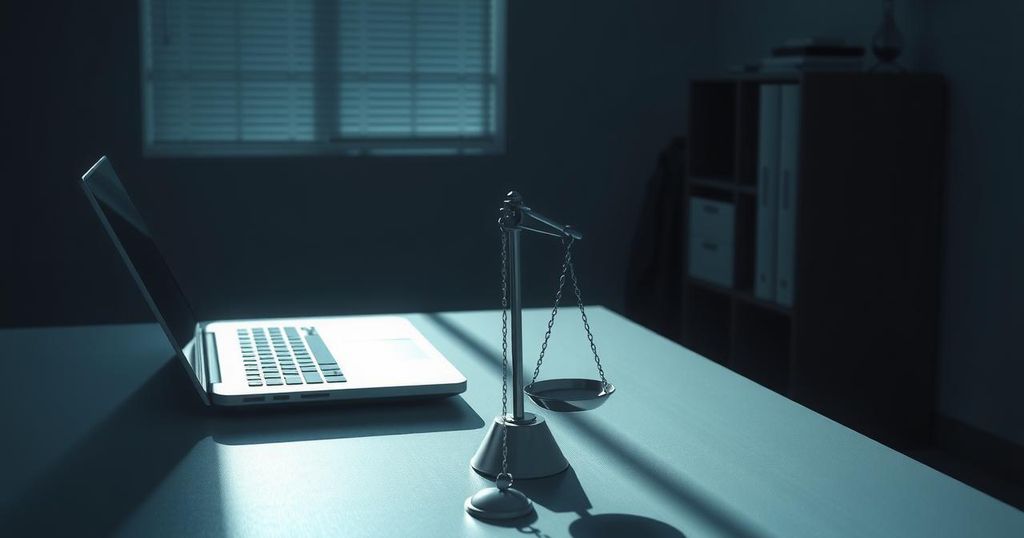President John Mahama delivered a sobering State of the Nation address, revealing a dire economic situation with only $64,000 in the Sinking Fund. He highlighted issues such as high national debt, stalled infrastructure projects, and the urgent need for economic reforms. Mahama emphasized that his administration would actively work to address these challenges, holding a National Economic Dialogue in March to outline strategies moving forward.
In his inaugural State of the Nation address delivered to Parliament on February 27, 2025, President John Mahama expressed deep concerns about the current state of the nation. He revealed that the Debt Service Reserve Account, or Sinking Fund, has a mere balance of $64,000 and GH¢143 million. He asserted, “The state of our nation is not good. Our economy is in crisis, and our people are suffering unprecedented hardships,” highlighting the economic struggles ahead.
President Mahama pointed to significant challenges in the energy sector, including collection losses and compliance failures, leading to a financing shortfall projected at approximately $2.2 billion or GH¢34 billion for 2025. Urgent actions are essential to bring these figures down to sustainable levels. The financial sector, despite prior government efforts costing GH¢29.9 billion for a clean-up, continues to experience significant struggles.
He criticized the previous government for inadequate reserves for debt servicing, highlighting their implementation of the Domestic Debt Exchange Programme as perhaps the most severe economic policy in the Fourth Republic. Mahama is determined to address the repercussions of excessive debt accumulation and economic mismanagement, which he says will require considerable effort and sacrifice.
The President also noted the impact of high debt levels on infrastructure projects, revealing that 55 projects have stalled due to debt default, amounting to $2.95 billion not disbursed. These delays are expected to incur GH¢15 billion in additional costs as a result. To tackle these issues, he announced a National Economic Dialogue scheduled for March 3rd and 4th, coupled with a budget presentation set for March 11th.
Mahama emphasized that his administration would not merely lament the state of the country but take responsibility for addressing the challenges. He stated, “I understand why I was elected with such high voter confidence—to solve their problems,” expressing a commitment to rectify the economic crisis and restore growth and prosperity.
Reflecting on past achievements, he recalled his success in resolving power supply issues, reiterating his pledge to repair the current economic crisis. He recognized the severity of the inherited problems, declaring the country’s economic situation in even worse condition than initially believed. He likened the situation to a proverb about discovering a frog’s true length only upon its death.
Mahama described the country’s public debt as a staggering GH¢721 billion, compounded by significant debts in state-owned enterprises like the Electricity Company of Ghana and Ghana Cocoa Board. For instance, COCOBOD is burdened with GH¢32.5 billion in debt, resulting in significant revenue losses for farmers due to contract rollovers that hinder supply.
Additional financial complications arise from cocoa road commitments totaling GH¢21.7 billion, exacerbated by election-related expenditure. Despite these daunting challenges, the President reaffirmed his commitment to lead efforts for economic renewal, stating, “I remain committed to leading this government, taking every necessary step to reset our economy, getting things back on track.”
In summary, President John Mahama’s address emphasized the dire economic conditions facing Ghana, illustrating significant challenges such as insufficient reserves for debt servicing, high national debt, and stalled infrastructure projects. His administration is embracing a proactive approach to rectify these issues through national discussions and targeted measures. Despite the obstacles, Mahama’s commitment to rebuilding the economy and addressing the hardships faced by Ghanaians shines through his pledges for action and reform.
Original Source: www.ghanabusinessnews.com






